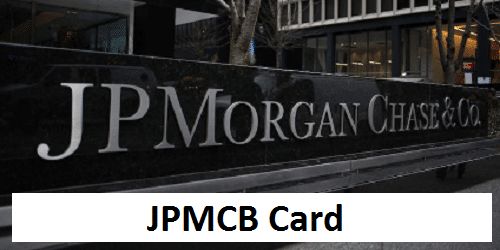Credit card advantages and disadvantages: In this day and age, credit cards have become indispensable for everyone. Many day-to-day transaction-based activities are impossible without a credit card.
Credit cards can be very useful, but they also often get a bad rap. Therefore, it is important to be financially literate and have a good understanding of the ins and outs of using it. Here are some the credit card advantages and disadvantages.
Benefits of Credit Cards
1. Easy access to credit
The biggest advantage of a credit card is the easy access to credit. Credit cards work with deferred payment, which means you can use your card now and pay for your purchases later. The money used is not deducted from your account, so your bank balance is not debited with every swipe.
2. Build a line of credit
Credit cards offer you the opportunity to build up a credit line. This is very important as it allows banks to see an active credit history based on your card redemptions and card usage. Banks and financial institutions often view the use of credit cards as a way of assessing a potential loan applicant’s creditworthiness, making your credit card important for a future loan or rental application.
3. EMI facility
If you’re planning a major purchase and don’t want to throw your savings into it, you can load it onto your credit card to delay payment. You can also pay off your purchase in equal monthly installments to ensure you don’t pay a lump sum and drain your bank balance. Paying through EMI is cheaper than taking out a personal loan to pay for something like a television or an expensive refrigerator.
4. Incentives and Offers
Most credit cards come packed with offers and incentives to use your card. These range from cash back to earning reward points every time you swipe your card, which can later be redeemed for airline miles or used to settle your outstanding card fees. Lenders also offer discounts on purchases made with a credit card, such as B. Plane tickets, vacation, or big purchases, so you can save.
5. Flexible credit
Credit cards have an interest-free period, a period during which no interest is charged on your outstanding balance. Between 45 and 60 days, you can take advantage of a free short-term loan if you pay the full amount due on your credit card bill on the day it is paid. This allows you to take advantage of a loan advance without having to pay the cost of an outstanding balance on your credit card.
6. Summary of Expenditure
A credit card keeps track of every purchase made through the card, with a detailed list that is sent along with your monthly credit card statement. This can be used to identify and track your expenses and purchases, which can be useful when creating a budget or for tax purposes. The lenders also offer instant notifications every time you swipe your card, giving the remaining loan amount and the current outstanding balance on your card.
7. Buyer Protection
Credit cards offer additional protection in the form of insurance for card purchases that may be lost, damaged, or stolen. The credit card statement can be used to vouch for the accuracy of a claim if you wish to make one.
Disadvantages of credit cards
1. Minimal trap
The main disadvantage of a credit card is the minimum amount owed, which appears at the top of a statement. Several credit card holders are misled into believing that the minimum amount is the total amount they must pay, when in fact it is the minimum amount the company expects you to continue receiving credit facilities.
This causes customers to assume their account is low and spend even more, accruing interest on their outstanding balance, which over time can add up to a large and unmanageable amount.
2. Hidden costs
Credit cards seem simple at first, but they have several hidden costs that can add to the overall cost. Credit cards have various taxes and fees, such as Late Payment Fees, Joining Fees, Renewal Fees, and Processing Fees. Missing a card payment can result in a penalty, and repeated late payments can even result in a reduction in your credit limit, which could hurt your credit score and future credit prospects.
3. Easy to overuse
Because your bank balance stays the same with a revolving loan, it can be tempting to put all your purchases on your card, leaving you with no idea how much you owe. This can cause you to overspend and owe more than you can pay back, starting the debt cycle and high-interest rates on your future payments.
4. High interest
If you do not pay your charges by the invoice due date, the amount will be carried forward and interest will be charged. This interest accrues over time for purchases made after the interest-free period. Credit card interest rates are quite high, averaging 3% per month, which equates to 36% per year.
5. Credit Card Fraud
Although this is not very common, there is a chance that you could become a victim of credit card fraud. With advances in technology, it is possible to clone a card and access sensitive information, allowing another person or organization to make purchases using your card. Check your statements carefully for suspicious purchases and inform the bank immediately if you suspect card fraud. Banks typically waive fees if fraud is proven, so you don’t have to pay for purchases billed by the thief.
How to use your credit card correctly
To avoid getting into debt by spending excessively on your credit cards, keep these credit card tips in mind:
- Read the fine print for all the fees and terms that apply to your card.
- Don’t spend more than you can repay.
- Don’t put daily purchases on your card so you know how much you’re spending.
- Check your credit limit regularly and limit your spending if you’re over 40% of your available credit limit.
- Choose an EMI option for large purchases on your card to avoid interest on outstanding card balances.
- Always have at least 40% of your credit line available for emergencies.
- Plan your purchases and only use your card for planned purchases. Avoid impulse purchases with your credit card.
- Always try to pay off your credit card bills in full each month to avoid interest charges.
- Never miss a card payment again as it will result in higher costs and a hefty fine.
- If you’ve overspent your card, go to the bank. They can help you create a fixed-rate repayment plan to avoid going deeper into debt.
Frequently Asked Questions About The Credit Card Advantages And Disadvantages
How much credit limit can I use?
Check your credit limit regularly and see if you have used more than 40% of your available credit limit.
What types of insurance does a credit card offer?
Credit cards offer additional protection in the form of insurance for card purchases that may be lost, damaged, or stolen.
Do I need to take out a loan or use my credit card’s EMI feature?
Paying through EMI is cheaper than taking out a personal loan to pay for something like a television or an expensive refrigerator.
Can I pay the minimum amount due?
Many credit cardholders believe that the minimum amount is the total amount owed that they must pay, when in fact it is the minimum amount that the company will require you to continue receiving credit facilities.
Do credit cards offer a credit-free period?
Credit cards have an interest-free period, a period during which no interest is charged on your outstanding balance. Between 45 and 60 days, you can take advantage of a free short-term loan if you pay the full amount due on your credit card bill on the day it is paid.
Do credit cards affect credit scores?
Yes, your credit cards affect your credit score. Paying your credit card bills on time keeps your credit score strong. However, if you pay your credit card bills after the deadline, it will negatively affect your credit score.
Is it a good idea to use a credit card?
Yes, using a credit card is only good if you use it responsibly. Many people do not use the card responsibly, which leads to credit card debt.
Can I withdraw money from my credit card?
Yes, you can withdraw money from your credit card. But to know if your bank offers this possibility or not.
Conclusion – Credit Card Advantages And Disadvantages
In general, a credit card is a great tool if used carefully. If you pay off on time and in full every month, you’ll be fine, otherwise, the accrued interest will eat a big hole in your pocket. Understanding these credit card advantages and disadvantages will be of great help.






